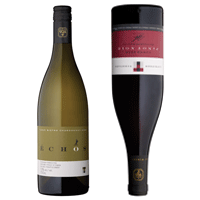Canadian wine is damn good, but does the rest of the world need to know about it?
Just as 40 top Ontario Chardonnays were being swirled and, hopefully, savoured by Britain’s best critics in London this past May (see story, below), Prince Edward County winemaker Norm Hardie told noted wine writer Jancis Robinson that, “It’s very important to get Canadians to believe Canadian wine can be great. And they need to hear it from outside. We don’t believe in ourselves — except in hockey.”
And he’s right. It’s very Canadian to want others to praise us, yet we rarely do it for ourselves. But is it necessary for foreigners to rave about what Canadian vintners are doing, to really “make it” as a wine nation?
“That’s a great question,” says Paul Pender, the talented organic, biodynamic winemaker at Tawse, which is situated on the bucolic Beamsville Bench in Niagara, Ont. “Canadians grow a small amount of grapes on an international level, and we have a large appetite for wine. We don’t need it in terms of selling product, but in order to ‘make it,’ it’s nice to have accolades. We can get more money for our wine if it’s reviewed well in Wine Spectator. The U.S. wine market also drives the industry worldwide. Whether that’s good or bad doesn’t matter.”
And while the nation’s boutique wineries have gone to battle with Canada’s big wine producers over the much-publicized Cellared in Canada quarrel, what nobody questions is the fact that the VQA wines Canada is currently producing are the best they’ve ever been. “Canadian wines have improved tremendously over the past 10 years,” agrees Jamieson Kerr, owner of the Queen and Beaver gastropub in Toronto, adding that many of his customers ask for them specifically. “Any Canadian wine I put on my list sells very quickly.” Kerr calls Canadian Rieslings “world class” and goes on to say Canuck Cab Francs are “right up there with the stuff that is coming out of the Loire Valley, while the Pinot Noirs are as good as anything coming out of southern Burgundy.”
And speaking of Canadian Pinots, Niagara’s Tawse and Henry of Pelham wineries have been invited to participate in the International Pinot Noir Celebration in Oregon later this month. It’s the first time Ontario Pinots will show at the renowned festival, but don’t think Pender is nervous about lining up his best against the homegrown favourites. “They don’t stand a chance,” he says. “What Oregon has over us is consistency; they market themselves far better; they focus on their varieties better; and their entry-level Pinots are better. But against our best Pinots there’s no comparison…Niagara is far more interesting. I know I’m cheering for the home team, but there it is.”
Canada’s wine industry should be hearing a lot more cheering, because there’s a great story to tell. In the past few years there has been a very strong push from restaurateurs, chefs, sommeliers and consumers about local food and wine. “We would be nothing without their support,” agrees Pender. “All the young people coming to the front lines are so passionate about Ontario wine. They’re really helping move it.”



















